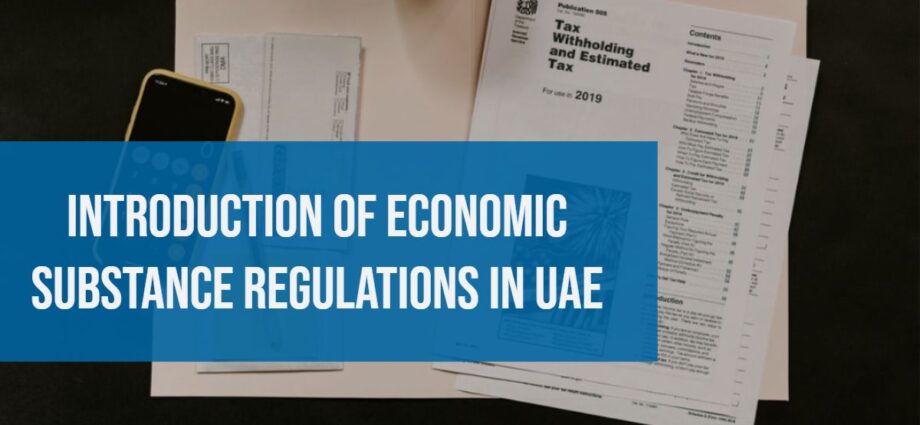In today’s global economic landscape, regulatory frameworks play a crucial role in ensuring transparency and fairness. The Economic Substance Regulations (ESR) were introduced in various countries, including the United Arab Emirates (UAE), as a response to the scrutiny from major regulatory bodies such as those in Europe and the United States. These regulations aim to address concerns regarding jurisdictions with minimal tax obligations for companies by requiring entities to demonstrate sufficient economic substance within their operating jurisdiction.
The Significance of Economic Substance Regulations
The ESR emphasizes the importance of accurately recording, tracking, and reporting financial activities undertaken by legal entities operating in the UAE. This includes companies, branches, subsidiaries, and entities located within free zones. By implementing these regulations, the European Union (EU) aims to promote transparency in cross-border trades and curb harmful tax practices.
European Union’s Criteria and Blacklist
The European Union has established specific criteria that jurisdictions must meet to avoid being listed as non-cooperative in tax matters. If a country fails to demonstrate substantial economic substance regulations, it risks being included in the EU’s blacklist of non-cooperative jurisdictions for taxation purposes. The UAE faced such scrutiny and was labeled a non-cooperative tax authority, leading to its inclusion on the EU blacklist.
Response of the UAE to ESR
In response to concerns raised by the EU Code of Conduct Group, the UAE Cabinet adopted new ESR on April 30, 2019. These regulations were implemented to align the UAE’s tax framework with international standards, particularly the anti-Base Erosion and Profit Shifting (BEPS) Action Plan proposed by the Organization for Economic Cooperation and Development (OECD).
Participation in BEPS Inclusive Framework
The UAE has become a member of the BEPS Inclusive Framework (BEPS IF), joining over 130 countries and jurisdictions committed to enhancing tax transparency. As a member, the UAE pledges to adhere to the minimum standards set by BEPS IF to improve tax-related transparency.
Key Criteria of BEPS Compliance
BEPS compliance involves meeting four minimum criteria:
- Countering Harmful Tax Practices
- Prevention of Granting Tax Treaty Benefits from Inappropriate Circumstances
- Country-by-Country Reporting
- Mutual Agreement Procedure
Compliance Requirements for Organizations
Entities operating in the UAE must demonstrate substantial economic presence and comply with reporting obligations. This includes:
- Performing core income-generating activities in the UAE
- Maintaining management and control within the UAE
- Employing an adequate number of full-time employees and physical assets in the UAE
- Directly controlling outsourced tasks
Filing Economic Substance Notifications
All UAE organizations conducting relevant activities must submit Economic Substance Notifications to the Regulatory Authority. The notification should include details such as the nature of activities, income generated, tax residency status, and ownership structure.
Annual Economic Substance Report
Businesses engaged in essential activities are required to submit an annual Economic Substance Report to evidence compliance with the regulations. The report should include information on activity locations, personnel, and adherence to economic substance requirements.
Penalties for Non-Compliance
Failure to comply with ESR or providing incomplete or inaccurate information can result in administrative fines ranging from AED 10,000 to 50,000 in the first year. Licensing Authorities also have the power to suspend, revoke, or deny license renewal for non-compliant entities.
Seeking Professional Assistance
Navigating the complexities of Economic Substance Regulations can be challenging for businesses. Professional advisory services, such as those offered by Simply Solved, can help assess compliance obligations, prepare necessary filings, and ensure alignment with regulatory requirements.
In conclusion, adherence to Economic Substance Regulations is essential for businesses operating in the UAE to maintain transparency and compliance with international tax standards. By understanding and fulfilling these obligations, organizations can mitigate risks and contribute to a fair and sustainable global economy.

3 Comments